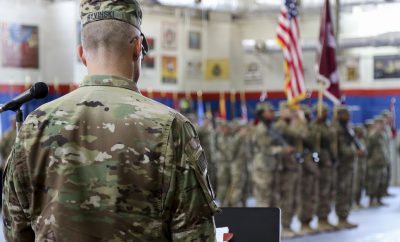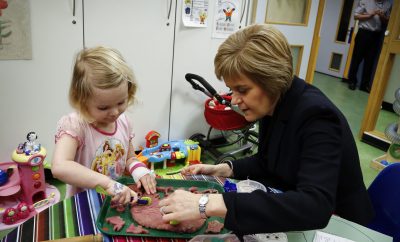 "Toys R Us," courtesy of Mike Mozart; license: (CC BY 2.0)
"Toys R Us," courtesy of Mike Mozart; license: (CC BY 2.0)
Society and Culture
Stores Organize Silent Holiday Shopping for Kids with Autism
Many people see shopping as a hobby or something to look forward to, but for people with autism, it is a hard task that often becomes overwhelming because of the crowds and noises. That is why some stores in the U.S. are now organizing days of “silent shopping” specifically for people on the autism spectrum and just in time for the holidays. Patti Erickson from the Greater Philadelphia Autism Society started the initiative and got her local Toys R Us store to catch on. On Saturday, the store hosted an event that attracted more than 30 families.
For silent shopping, the music normally playing in the store is turned off. “They’re processing it differently, and it could maybe even sound like nails scratching on a chalkboard to them,” said Erickson, who has a 26-year-old daughter with autism. Sensory stations with toys and kinetic sand were set up in the store to offer a distraction that the kids could focus all their attention on if they needed a break. “Different sensory things help them get acclimated to the store and grounds their body so they can really stay focused and can almost ignore anything else around them that would bother them,” according to Erickson.
For families of those on the autism spectrum, shopping can be difficult. Some stores are now offering quiet shopping https://t.co/ck8xndClAM pic.twitter.com/V7o2wXg4aj
— CNN (@CNN) December 9, 2016
Autism is defined by difficulties in social interaction and communication, and engaging in repetitive behaviors. Though some people on the autism spectrum excel at specific skills–like music, art, and mathematics–some cannot function on their own. People with autism often have trouble communicating verbally what they want or how they feel–about a third are nonverbal, but communicate through body or sign language instead. This makes it extra hard for parents who are holiday shopping and trying to determine what their kids want while avoiding situations that can be stressful for their children and people nearby.
We’ve teamed up with @ToysRUs in #Miami for #autism friendly quiet shopping hours on 12/10/2016. Learn more –> https://t.co/6o0CBX7AAx pic.twitter.com/8hegz72VWz
— American Autism Assn (@MyAutism) November 28, 2016
“When you have those parents who mutter under their breath and stare, you know, it hurts. A smile versus a stare makes such a difference,” Linda Moser, mother of 10-year-old Adam who was at the Pennsylvania store, told CNN. But at the same time, it can be good to practice difficult situations both for parents and children. “If we’re avoiding those situations, we’re not able to teach them how to navigate them,” said Candice Colón-Kwedor from the May Institute School for Autism and Developmental Disabilities. The ultimate goal for family members of children with autism is that they can go into stores or public places and enjoy it.
After the silent shopping success, more stores are following the lead this Saturday, like the Target in Lancaster, Pennsylvania and the Toys R Us in Miami. If more businesses join the cause, it could lead to a meaningful lesson in diversity. When more individuals with autism were seen out and about, the general public’s knowledge and acceptance of autism might increase. “When you have something like this, it makes it easier on everyone, and that can mean so much to a family,” Erickson said.








Comments